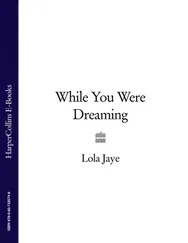脑被驴踢了 nǎo bèi lü’ tī le (now bay lee tee luh)
Kicked in the head by a donkey. Popular among young people, used to call someone stupid.
痞子 pǐzi ( pee dz)
A mild insult along the lines of “ruffian” or “riffraff.” The literal meaning alludes to medical conditions of the liver, spleen, or abdomen, suggesting that pǐziare like a disease on society.
没起子 méi qǐzi ( may chee dz)
Useless, stupid, a good-for-nothing. Literally “no ambition.”
弱智 ruòzhì ( rwuh jih)
Idiotic, stupid. Literally “mentally enfeebled.”
玩儿闹 wánr nào ( warr now)
Troublemaker, ruffian. Also means “to fool around” or “to run wild.” Beijing slang only. Literally “play and quarrel” or “play and loudly stir up.”
冤大头 yuān dàtóu ( yren dah toe)
Fool. Literally “wrong bighead.”
浑球儿 hún qíur ( hwen chyurr)
Good-for-nothing, rascal. Literally “unclear ball.” 浑 hun means “unclear” or “dirty,” as in 浑水 hún shuǐ ( hwen shway ), or “dirty water.” Typically employed by parents to reprimand their kids. Used in northern China.
脑残 nǎocán ( now tsahn)
Means “mental retardation” or “a mental disability” and is a popular insult among young people. One usage is 你脑残吗? nǐ nǎocán ma?( nee now tsahn ma ), meaning “Are you retarded?” or “Is there something wrong with your head?”
脑有屎 nǎo yǒu shǐ ( now yo shih) or 脑子里有屎 nǎozi lǐ yǒu shǐ ( now dz lee yo shih)
Shit in the brain. Popular among young people.
The supernatural
瘟神 wēn shén ( when shen)
A mild insult along the lines of “troublemaker.” Literally “god of plague,” referring to Chinese mythology. Considered old-fashioned now in much of China, but still used quite a bit in Sichuan Province and some southern areas.
鬼 guǐ ( gway)
Means “devil” or “ghost.” Not typically used as an insult in of itself, but often added onto adjectives to turn them into pejoratives. For example, if you think someone is selfish, or 小气 xiǎo qì ( shyaow chee ), you might call them a 小气鬼 xiǎo qì guǐ (shyaow chee gway), literally “selfish devil.”
见鬼 jiànguǐ ( jyinn gway)
Literally “see a ghost.” Can be exclaimed alone to mean something like “Damn it!” or “Crap!” or “Oh shit!” But it is not profane like some of those English equivalents. Can also be used as an intensifier, as in 你见鬼去吧! nǐ jiànguǐ qù ba! ( nee jinn gway chee bah ), which literally translates as “you see a ghost leave” but means “Go to hell!” or “Fuck off!” or “Get the hell out of my face!”
Rural insults
土 tǔ ( too)
A pejorative with a broad range of meanings. It literally means “dirt” or “earth” and, most broadly, is used to describe an unsophisticated or uncultured person, much like “redneck” or “yokel” or “hick.” Someone who spits on the floor while indoors, doesn’t line up to buy things, or who can’t figure out how to use the ticket-vending machine in the subway, might be called tǔ. Tǔ can also be a generic, somewhat all-purpose put-down, like “dork.” More recently, tǔrefers to someone out of touch with aspects of modern society-for example, who doesn’t know how to use the Internet.
土包子 tǔ bāozi ( too baow dz)
Someone who is tǔ. ( Tǔis an adjective while tǔ bāozi is a noun.) One explanation for this term is that 包子 bāozi (a steamed, breadlike bun with meat or vegetable filling) is a common food in poor, rural areas, and so tǔ bāozi indicates that the person comes from the countryside.
老冒儿 lǎo màor ( laow murr -the first syllable rhymes with “cow,” and the second rhymes with “burr”)
Northern Chinese slang for tǔ. Literally “old stupid” (though it can be said of anyone, not just old people). 冒 Mào is slang for “stupid” or “inexperienced” but is seldom used by itself anymore.
土得掉渣儿 tǔ de diào zhār ( to duh dyow jar)
Ignorant, hick, unrefined. Literally “bumpkin shedding dirt,” suggesting that someone is so tǔ that dirt is falling off them. Used in northeast China.
农民 nóngmín ( nohng meen -nóng has a long o sound, like in “bone”)
Literally means “farmer” or “peasant” (unlike in English, “peasant” is a neutral term in Chinese) but when said disdainfully can carry the same “country bumpkin” connotations as tǔ (above). However, nóngmínis not used nearly as often as tǔ.
柴禾妞儿 chái he niūr ( chai huh nyurr)
An insulting term for a country girl, used in Beijing only.
没素质 méi sùzhì ( may soo jih)
Literally “no quality.” Said, like tǔ, of someone who acts in uncivilized ways and means he or she has no upbringing, manners, or class.
不讲文明 bù jiǎng wénmíng ( boo jyahng wen meeng)
Same meaning as méi sùzhì (above) but less commonly used. Literally “not speaking civilization.”
Extremely rude
烂人 làn rén ( lahn ren)
Bad person. Literally “rotten person.”
缩头乌龟 suō tóu wūguī ( swuh toe ooh gway)
Coward. Literally “a turtle with its head in its shell.”
臭 chòu ( choe)
Stupid, bad, disappointing, inferior. Literally means “smelly” and is often added in front of insults to intensify them. So, for example, “smelly bitch” in Chinese, 臭婊子 chòu biǎozi ( choe byow dz ), is, as in English, much stronger than just “bitch.”
丫头片子 yātóu piànzǐ ( yah toe pyinn dz)
A Beijing insult for a young girl who’s ignorant and inexperienced. 丫头 Yātóu means “servant girl.” Literally “servant girl piece.”
丑八怪 chǒubāguài ( choe bah gwie)
An insulting term for an extremely ugly person. Literally “ugly all-around weird.”
泼妇 pōfù ( pwuh foo)
Shrew, bitch. An insulting term for a mean, crazy woman. Literally “spill woman.”
三八 sānbā ( sahn bah)
In Taiwan this just means “silly” and is said of both males and females, but on the mainland it is a very strong insult for a woman, similar to “bitch” or “slut.” (Though sometimes it just means “gossipy.”) Literally, it means “three eight,” for which there are two explanations. One is that during the Qing dynasty (1644-1911) foreigners were supposedly only allowed to circulate on the eighth, eighteenth, and twenty-eighth of each month, and thus foreigners were called, somewhat scornfully, sānbāfor the three eights. Another explanation is that sānbārefers to International Women’s Day, which is on March 8. In contexts when it means “bitch” or “slut,” it’s common to amp up the strength of sānbāas an insult by saying 死三八 sǐ sānbā ( sih sahn bah ), literally “dead bitch,” or 臭三八 chòu sānbā ( choe sahn bah ), literally “stinking bitch.”
黄脸婆 huángliǎnpó ( hwahng lyinn pwuh)
Slightly derogatory term for a middle-aged married woman. Literally “yellow-faced woman,” meaning that she is old and ugly.
白眼狼 báiyǎn láng ( buy yen lahng -the last syllable is similar to “long” but with an ah sound replacing the o)
Ingrate, a ruthless and treacherous person. Literally “white-eyed wolf.” Both “white eyes” and “wolf ” are insults in Chinese.
Читать дальше










